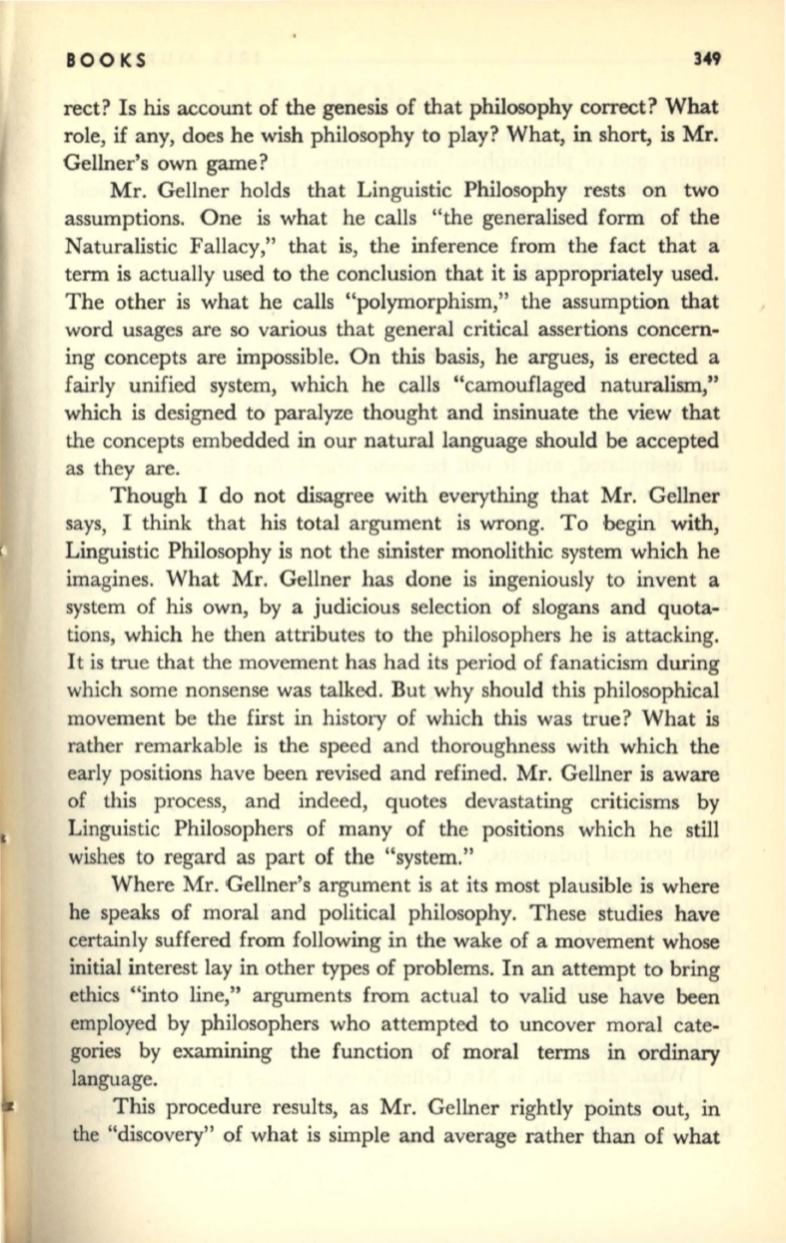
BOOKS
349
rect? Is his account of the genesis of that philosophy correct?
What
role,
if
any, does he wish philosophy to play? What, in short, is Mr.
Gellner's own game?
Mr. Gellner holds that Linguistic Philosophy rests on two
assumptions. One is what he calls "the generalised form of the
Naturalistic Fallacy," that is, the inference from the fact that a
term is actually used to the conclusion that it is appropriately used.
The other is what he calls "polymorphism," the assumption that
word usages are so various that general critical assertions concern–
ing concepts are impossible. On this basis, he argues, is erected a
fairly unified system, which he calls "camouflaged naturalism,"
which is designed to paralyze thought and insinuate the view that
the concepts embedded in our natural language should be accepted
as they are.
Though I do not disagree with everything that Mr. Gellner
says, I think that his total argument is wrong. To begin with,
Linguistic Philosophy is not the sinister monolithic system which he
imagines. What Mr. Gellner has done is ingeniously to invent a
system of his own, by a judicious selection of slogans and quota–
tions, which he then attributes to the philosophers he is attacking.
It is true that the movement has had its period of fanaticism during
which some nonsense was talked. But why should this philosophical
movement be the first in history of which this was true? What is
rather remarkable is the speed and thoroughness with which the
early positions have been revised and refined. Mr. Gellner is aware
of this process, and indeed, quotes devastating criticisms by
Linguistic Philosophers of many of the positions which he still
wishes to regard as part of the "system."
Where Mr. Gellner's argument is at its most plausible is where
he speaks of moral and political philosophy. These studies have
certainly suffered from following in the wake of a movement whose
initial interest lay in other types of problems. In an attempt to bring
ethics "into line," arguments from actual to valid use have been
employed by philosophers who attempted to uncover moral cate–
gories by examining the function of moral terms in ordinary
language.
This procedure results, as Mr. Gellner rightly points out, in
the "discovery" of what is simple and average rather than of what


